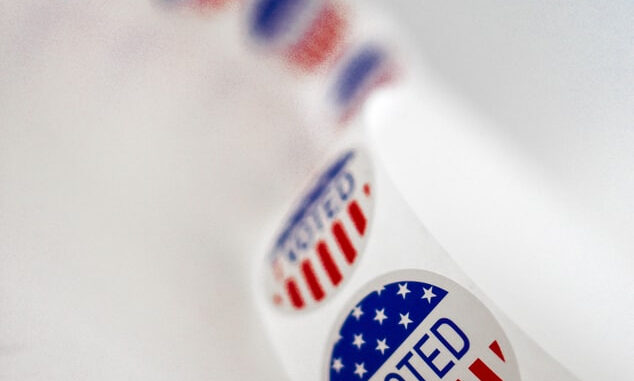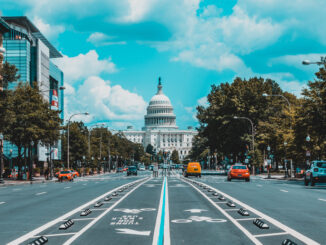
Sarah Dujordan | staff columnist
Sept.16, 2021
Celebrities and politics: two words I am sure George Washington thought he would never hear in the same sentence. Contrary, Ronald Reagan, Arnold Schwarzenegger and Donald Trump were once mainstream celebrities that broke into the political sphere.
While it is comical to see names like Kanye West, Harambe and Oprah on the voting ballots and talking about running for president, where does the line blur between the two?
Activism and politics are huge motivators behind Gen Z’s legacy. Coining terms like “woke” and “cancel culture,” this generation has the answers constantly at their fingertips. The climate that we are in right now almost makes politics inescapable. It is not a bad thing to be informed, but who are the ones we should really be listening to?
Influencers, actors and musicians are mainly at the forefront of those being ridiculed when speaking about politics.
Ariana Grande had voter registration tables at her concerts, encouraging her fans to get politically involved. In 2018, Taylor Swift broke her silence about politics, resulting in 65,000 people registering to vote in a 24-hour period. All the while, Harry Styles waves pride flags and #BlackLivesMatter flags on stage at his concerts.
On top of that, we just had 18-year-old Olivia Rodrigo speak at the White House about vaccinations. With celebrities having the platform that they do, doesn’t it make it necessary for them to speak out?
These are all tactics helping the greater good and it is vital to take a stand, but we have to realize that those uneducated should not be preaching.
TikTok star Charli D’Amelio was under fire this past summer regarding her lack of content stating her political stance toward the Black Lives Matter movement. After some time, she did a live stream speaking about racism and injustice in America.
The idea was there, but should we as a society really be putting all this pressure on a 17-year-old privileged white girl to speak on the Black experience in America? I think not.
In the end, “cancel culture” never seeks to actually solve the issues. We dislike and ridicule the person for weeks and then once it blows over, they continue to reclaim their fame. Just take a look at David Dobrik.
Multiple women came forward saying that they were sexually assaulted by a member of Dobrik’s “Vlog Squad.” It later came out that there was video evidence posted on his channel.
Despite this, according to YouTube, Dobrik’s last upload was watched by 6.8 million people.
When you support someone in the way you do, you — as a fan — want to make sure they support you right back as a human being. Yet, here is where we circle back to people like Kanye West.
This past election, he announced his run for president. He held minimal rallies, but still campaigned as a candidate. While West only qualified for ballot access in 12 states, he still received 60,000 votes.
The 2020 election was personal for many. It was also a close call when it came to the ballot numbers. Many online joked about how they voted for Kanye, or were going to. Politics are starting to become a celebrity’s playground — and that’s the issue.
Celebrities posting a political graphic to their Instagram is one thing, but I am not sure if I want mainstream celebrities deciding on if we should go to war or not.
Personally speaking, we should keep “traditional” politics to those who have dedicated their lives to it, though, still holding them accountable for their wrongdoings and being careful to not turn politicians into celebrities.
By recognizing the difference between trend and activism, that is where we can differentiate the blurred line. Politics are always going to be a sensitive topic to discuss, and while our generation is on the uprise in positive impact and change, the eyes have to be kept on the prize. Real change is what we want to see in the end.
If celebrities help us get there, then so be it, but focusing on national and local candidates, and elections are what inflict tangible change every day.




